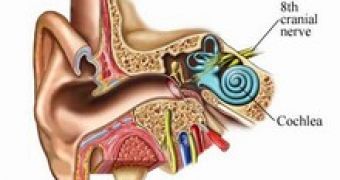Detecting and addressing hearing impairment in the first few months of life can improve the ability to understand and use language, but it seems to have little effect on speech, new research indicates.
The US, UK, and other countries have implemented universal screening of newborns for hearing impairment, but the effect of these programs on verbal abilities later in childhood are unclear.
The present study, which is reported in The New England Journal of Medicine, involved 120 children with bilateral hearing impairment who had their language and speech ability assessed at around 8 years of age. Sixty-three age-matched children with normal hearing served as a comparison group.
Roughly, half of the subjects were born during periods when universal newborn screening was in effect and half were not, Dr. Colin R. Kennedy, from Southampton General Hospital in the UK, and colleagues note. Fifty-seven subjects had their hearing loss confirmed by 9 months of age and 63 had it confirmed after 9 months.
Hearing loss confirmation by 9 months of age was tied to higher scores for both receptive and expressive language. Newborn screening for hearing loss had a similar effect on receptive language, but fell short of statistical significance for expressive language.
As noted, neither newborn screening nor early confirmation of hearing loss had a significant effect on speech scores, the investigators found.
Longer follow-up is needed to see if children with early detection of hearing loss "have higher academic achievement and continue to show superior language skills at high-school age," the authors conclude.

 14 DAY TRIAL //
14 DAY TRIAL //